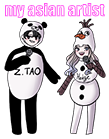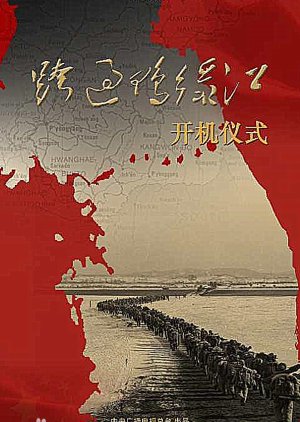Qiao Guanhua asked the members of the negotiating expert group to exercise every day. They are also fighters. Li Kenong was coughing up blood, but the negotiation ideas and plans were in his mind, so he couldn't rest assured that he would return home to recover from his illness. Chen Geng visited the blast-proof tunnel, proposed to continue to strengthen its structural strength, and invented the tunnel defense. Although the difficulty of digging increases in this way, air defense and persistence can be carried out at the same time. General Peng mobilized the entire army to dig holes, so that the US aircraft and artillery could not help them. The rock in North Korea is hard to dig. Chen Geng suggested that blacksmiths in the conscript army use the shells of American bombs to forge shovels and other utensils on the spot, and take out the unexploded bombs and ammunition to blast the mountains. Volunteer soldiers responded to military command and began to forge iron tools to dig tunnels.
Li Qiwei emphasized that China's logistics line of defense is very weak, and it can win by cutting off supplies. He wants to use the air force to continuously bomb railways and bridges, not giving the volunteers time to repair them. In order to gain the advantage of the negotiation, the US military concentrated its firepower to carry out aerial strangulation battles on transportation routes. Faced with this situation, the Volunteer Army’s logistical support is facing unprecedented challenges, and if this continues for less than a month, they will have to withdraw from the 38th line. President Peng proposed to mobilize the antiaircraft artillery team and let the 69th Division serve as an air defense post, so that an average of four people can be deployed per kilometer to monitor the air defense. President Peng emphasized the need to ensure the construction of a railway transportation line that cannot be destroyed by bombing. Hong Xuezhi hoped that the Air Force could also join the war, and President Peng could only ask Chairman Mao again for this. Li Qiwei discovered a change in the way the volunteers fight. At this time, North Korea is going through the rainy season. This is an excellent opportunity for the US military. North Korea has rained continuously for a month, roads and railways have been severely damaged by floods, and bridges have also been washed away. Even if the volunteers are working day and night, they cannot be completely repaired.
Mao Zedong and Zhou Enlai called Liu Yalou. At present, four Chinese air divisions are training in Anton. The flight time of jets has just reached 20 hours. The Chinese Air Force currently has only 150 aircraft. Although the Soviet Union agreed to rotate 300 aircraft in batches. Compared with the thousands of US military, this is still a big gap. However, the aircraft donation campaign initiated by the people across the country has achieved very good results, and the enthusiasm of Chinese pilots to participate in the war has never been greater. After receiving a telegram from President Peng, the situation in North Korea should not be delayed. Mao Zedong and Zhou Enlai told Liu Yalou that he must be cautious, but he must also dare to fight the bayonet with the US army in the sky of 10,000 meters.
Since August 1951, the Volunteer Air Force and the anti-aircraft artillery team began to counter the US air strangulation plan at the same time. The engineers also made full use of the new construction method to ensure the smooth passage of the railway traffic "triangle". The volunteers and the Korean people worked together to finally build a bomb Hit constant rail transportation. In December 1951, Shi Fumin, the squad leader of the fifth company of the Second Regiment of the 1st Division of the Volunteer Railway Corps, grabbed a screw wrench to connect two special-shaped steel rails for an hour and a half while rushing to repair the railway bridge, so that all 18 trains passed, and he vomited blood. He didn't let go of his hands, so he won the title of second-class hero. After dawn, the comrades searched for the railroad tracks to wake up Shi Fumin, who had stayed for the night. Together, they looked up and watched the volunteer air force fly across the sky. The First Brigade of the Air Force, under the leadership of Captain Wang Hai, bravely and tenaciously defeated the US military in air combat with over 80 shots down and wounded 89 enemy planes, earning first-class collective merit.
Li Qiwei looked at the reports of more than a hundred planes shot down by the Volunteer Air Force and anti-aircraft artillery within a month. He was surprised and angry about why China became so powerful overnight. Reporters in the White House News Room asked the military to announce the true situation of the casualties of the Air Force, and the data they had were provided by the families of the soldiers killed. The military refused to involve confidentiality. Faced with doubts as to why the Volunteer Air Force suddenly increased, the US only stated that it had not found any signs of Soviet participation in the war.
The strangling battle of the US Air Force has been going on for a month. The railway soldiers and engineers are working round the clock. The destroyed railway will be repaired immediately and never overnight. Their casualties are even more than those of the frontline soldiers. Railway soldier Yang Liandi invented the feat of erecting a pontoon bridge in the flood, and Hong Xuezhi was full of praise for him. President Peng proposed to let these outstanding soldiers attend the upcoming National Day ceremony, they are all outstanding representatives of the volunteer army.
The US tank division plans to attack Wendengchuan, where the 610th Regiment of the 204th Division is garrisoned. Yan Xiangzi, the platoon leader of the anti-tank squadron, faced hundreds of tanks. In order to defend the volunteers, the U.S. Army climbed up and threw grenades inside. Not only did they send infantry behind the tanks but also sealed the lid. The regiment commander told them that the anti-tank equipment of the entire division had been transferred, and the engineering company had to dig anti-tank fortifications overnight. But the engineering company did not work on such fortifications at all, so the entire regiment had to study and dig deep pit fortifications overnight.
The U.S. Army keenly discovered that the volunteer soldiers on the opposite side did not have experience in anti-tank group operations. They used tanks to advance and charge quickly in an attempt to win the battle. The speed of the tank is too fast, and the range is too far, and the Volunteer’s anti-tank shells are difficult to target. Volunteer soldiers had no choice but to keep moving forward with their gun barrels, but the closer they got to the tank, the more likely they were to expose themselves. Faced with the absolute difference in weapons and equipment between the enemy and ours, the soldiers of the 610th Anti-tank Brigade did not risk the bombing of tanks. He stopped and shot the most accurate Hu Lian holding an anti-tank launcher to destroy several tanks and finally fell into the fire.
On the first day, the U.S. tank corps almost rushed across the line of defense. The 610th regiment felt very guilty, but the commander knew that it was very brave that they were ordered to fight tank shells with flesh and blood. The whole division summed up its combat experience and moved its position 150 meters forward. Yan Xiangzi even proposed to lurch on the road tomorrow and use anti-tank grenade and artillery barrels to close the attack, but in this way, the soldiers will be easily spotted by American infantry and de-outflanked.

